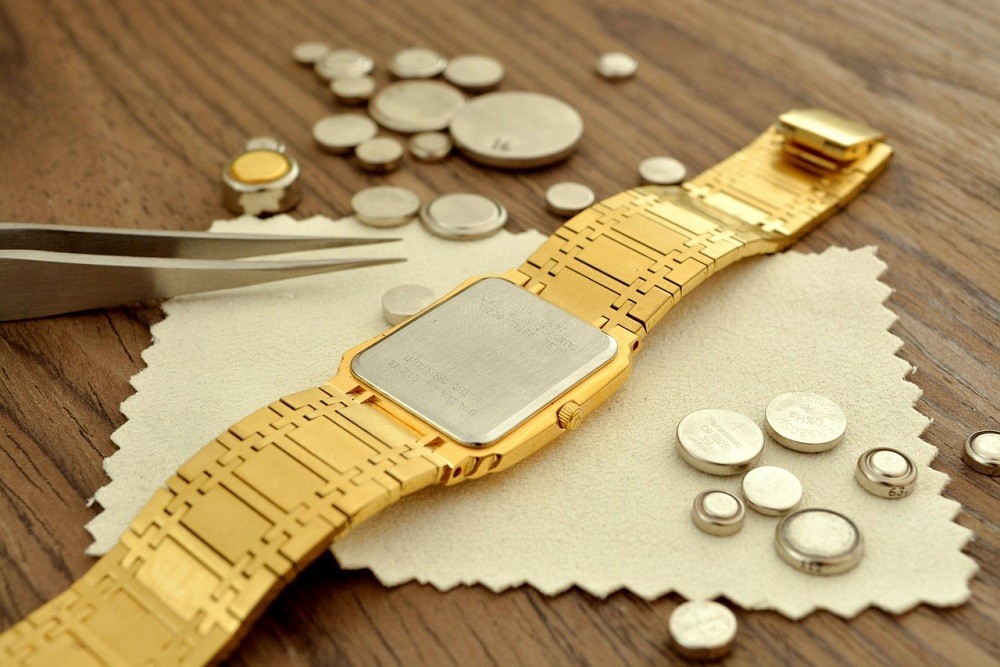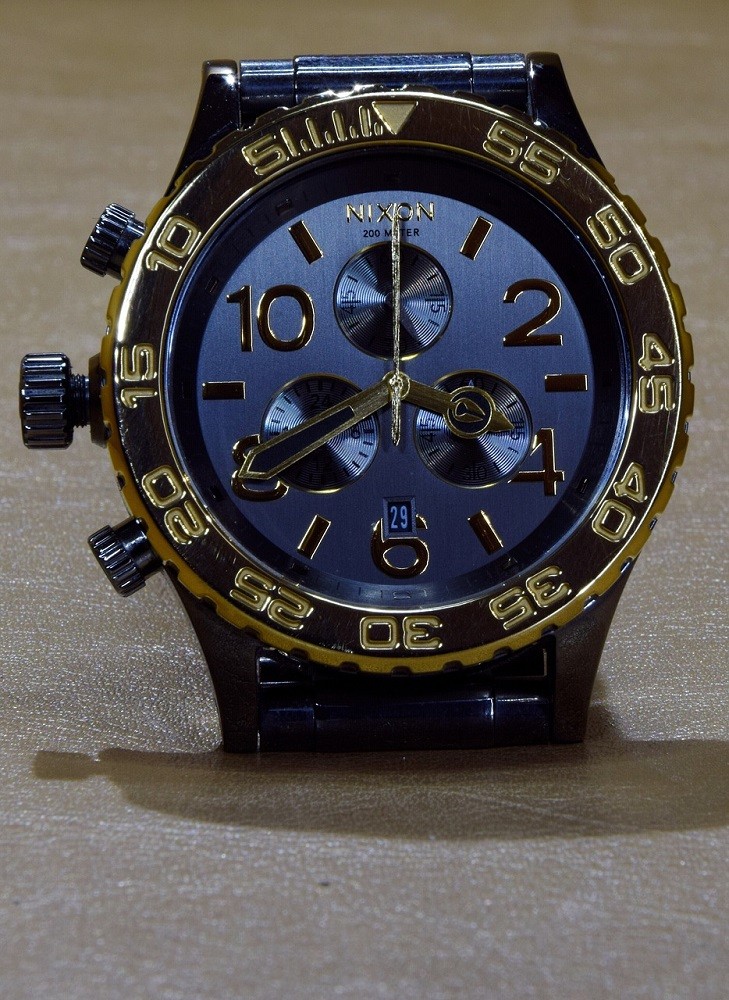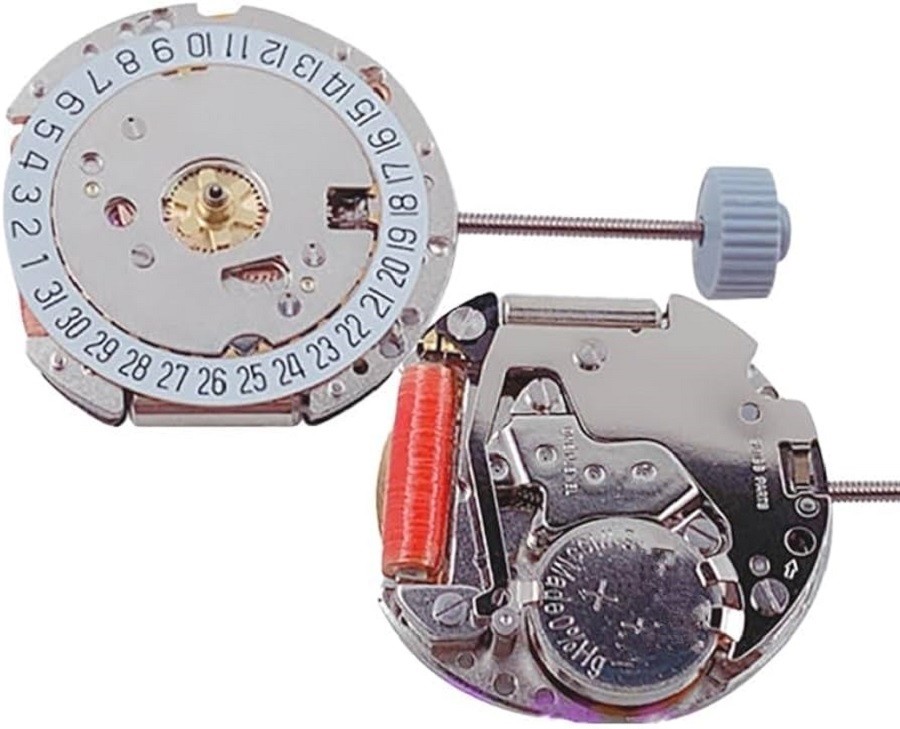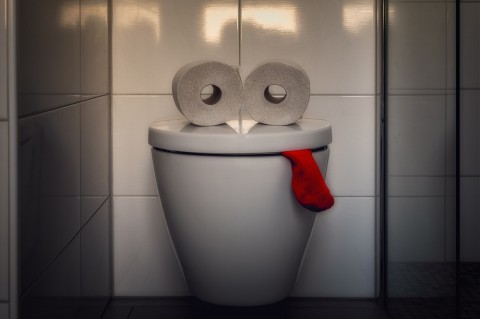The Esteemed Gentleman Articles
Top Reasons Why Your Quartz Watch Stopped And How To Fix It
Quartz watches are known for their accuracy, low-maintenance and reliability. That does not mean that they are indestructible. Just like mechanical watches, quartz watches can be damaged through wear and tear and sometimes require a trip to a watchmaker.
In this article we will review some of the most common reasons why a quartz watch could stop working. We also offer some solutions on how to fix it so you can get it back on your wrist in no time:
The Battery In Your Watch Is Dead
A dead battery is the most common reason why a quartz watch has stopped working. Quartz watch batteries can last anywhere from 1-5 years depending on the size of the battery, number of complications, and usage.
A basic three-hand watch will last longer than a watch with multiple complications like a chronograph, date window, and GMT function.
Batteries for quartz watches are relatively cheap and can be found at most department stores and online retailers. Many quartz watch case backs can be pried or screwed off but we recommend taking your watch to a professional watchmaker unless you have the proper tools. Even a slight bend to the watches case back can be enough for water to get in and ruin the movement.
If you notice your quartz watch stopped running, take it in to get the battery replaced as soon as possible. If left unattended, the battery could leak. A leaky battery will corrode the inside of the watch, destroying the movement.
The Crown Is Not Fully Pushed In
If your quartz watch has stopped working, check to see if the crown is pushed in fully. Many quartz watches stop ticking when the crown is pulled out. Check for debris between the crown and watch case. Sometimes a small piece of dirt can be enough to prevent the crown from being fully pushed in.
If you are not sure if your crown is pushed in all the way, pull it out, then push it back in. You should hear an audible click when the crown engages with the movement.
Some people believe that pulling the crown out will extend its battery life. We hate to burst your bubble, but that is not true. Although the hands aren't engaged, the battery will still run to the watch. We wrote an entire article on it titled Should You Pull The Crown Out Of Your Quartz Watch To Save Battery Life? that goes into more detail.
Your Watch Could Be Damaged
Even though quartz watches are more durable than mechanical watches, they can suffer from physical damage. Examples of physical damage include:
Water Damage
Some signs that your quartz watch has suffered water damage includes:
- Condensation or fog formed on the crystal
- The dial, hands, and indices may look discoloured
- The crown may be seized or tough to rotate
- Rust on the case (check both the front and back)
- Staining or residues around the case back and crown
- Chronograph pushers stick or not engage at all
If you notice any of these signs of water damage on your quartz watch and want to save it, take it to a reputable watchmaker right away. They may be able to salvage the case and dial but the movement will most likely need to be replaced. Quartz watch movements are normally cheaper than mechanical watch movements.
Sudden Impacts
Although quartz watch movements have less moving parts, they can still be damaged by sudden impacts like from being dropped. Hands, indices, battery contacts, and pins holding the movement can become dislodged and broken from a sudden impact.
Digital watches, like G-Shocks, can withstand being knocked around since they are designed to handle the elements. We recommend not wearing a quartz dress watch if you are heading to the grid iron or out to the links for a round of golf.
Electric Shock
In rare cases a quartz movement can become damaged if you receive an electric shock. Since there are electrical parts inside the movement, any current that exceeds its rating could potentially short out the watch
Most quartz watches on the market today are resistant to EMP (electromagnetic pulses).A small shock from walking on carpet or touching your pet's nose won't be enough to do any damage but dealing with electrical circuits and appliances may be enough to ruin it.
Your Watch Was Subjected To Prolonged Exposure To Heat Or Cold
Quartz watches should never be left in direct sunlight for long periods of time (unless it is a solar-powered watch). Prolonged exposure to sunlight and heat can cause discolouration to the dial, decrease battery life, and even dry out seals and gaskets.
Extended exposure to cold temperatures could lead to condensation buildup inside the watch, decreased battery life, and issues regarding the watch's accuracy. In extreme cold temperatures, the watch could stop altogether.
Summary
Quartz watches can take a licking and keep on ticking most of the time. Sometimes they require some TLC and maintenance. Do not ignore your quartz watch when it starts to show signs of wear and tear. With proper care, that little circuit board and batter will last for decades!
When you subscribe to the article, we will send you an e-mail when there are new updates on the site so you wouldn't miss them.










Comments